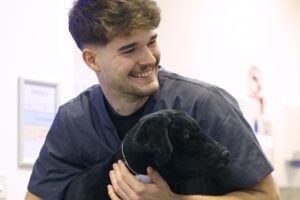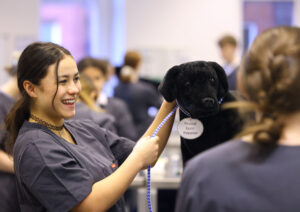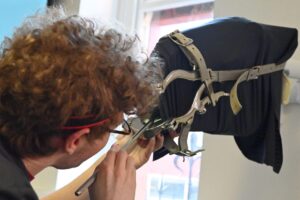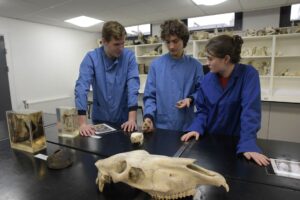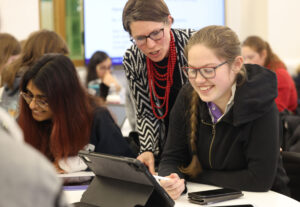As a Biosciences graduate from the University of Liverpool, you will have an excellent set of career options ahead of you.
Typical types of roles/routes our graduates have gone on include:
- Postgraduate study: (MBiolSci, MSc, MRes, MPhil or PhD)
- Public sector – research institutes, government departments, the National Health Service, forensic science and the Environment Agency.
- Commercial sectors – pharmaceutical, food, biotechnology, water and agriculture industries.
- Journalists and information/liaison officers – by developments in molecular biology and biotechnology.
- Teaching profession by taking a postgraduate qualification (PGCE).
- Routes to postgraduate Medicine, Dentistry or Veterinary Science.
Work experience opportunities
Students on our four-year MBiolSci programme have the opportunity to take elective internships abroad at our partner institutions. For example, while at universities in Thailand, students have worked on topics such as coral reef and mangrove ecology, genetics of shrimp development and new drugs for tuberculosis.
Students in their final year of the MBiolSci programme also have the opportunity to take a six-week biosciences-related internship as an optional fourth year module which runs during the course of the summer prior to Year Four. Alternatively, students can spend the entire final Year Four in industry or other enterprises. Internships and placements are subject to availability.
You will have the exciting option to undertake a foreign field course in western Uganda which is available when studying a number of our undergraduate degree programmes. The 12-day trip involves study at both the Kibale National Park (10 days) and Queen Elizabeth National Park (two days).
Topics covered whilst in Uganda include tropical forest and savannah ecology, biodiversity patterns, primate behaviour, and ecology, subsistence versus commercial agricultural practices, and ecotourism.
In addition, there is the option of the LIFE399 Life Sciences work-based placement module. LIFE399 is an optional third-year module that runs during the course of the summer prior to Year Three. Students will undertake a placement to assist their personal development and employability and will complete a skills audit, reflective log, and report, based on their experience. The module is worth 15 academic credits.
You can further explore postgraduate opportunities at taught or research level here at Liverpool.

